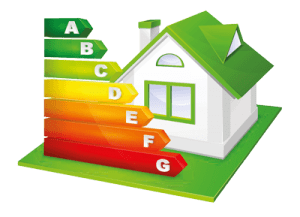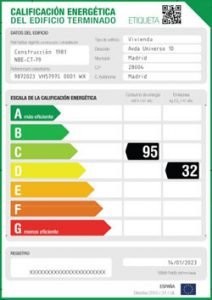What is an EPC?
An Energy Performance Certificate (EPC) is an official document that provides an energy efficiency rating and environmental impact score for a building, similar to the energy labels on appliances.

An Energy Performance Certificate (EPC) is an official document that provides an energy efficiency rating and environmental impact score for a building, similar to the energy labels on appliances.

Spain is making huge changes to its housing legislation aimed at improving energy efficiency and reducing emissions in the building sector. These new energy performance regulations, are part of the country’s alignment with EU climate goals, and will have a major impact on homeowners, landlords, and short-term rental operators like Airbnb hosts. If you plan to sell or rent out your property in Spain in the coming years, here’s what you need to know.
2030: Minimum energy rating of “E” required for all property sales and rentals
2033: Minimum energy rating increases to “D”
Yes, new rental contracts cannot be signed after 2030 unless the property meets the energy requirements. Existing long-term leases may continue, but any renewal or change in tenant will require compliance.
Yes, starting in 2030, all residential properties in Spain must meet a minimum energy rating of “E” in order to be sold or rented legally. From 2033, the minimum standard will rise to a “D” rating. If your property currently holds an “F” or “G” rating, you’ll need to carry out energy efficiency upgrades before you can sell or rent it.
Only certified architects, engineers, or qualified energy assessors registered in your Autonomous Community can legally issue an EPC.
You’ll need an Energy Performance Certificate (EPC), also known as a Certificado de Eficiencia Energética (CEE) in Spain. A certified technician will assess your property’s insulation, heating, cooling systems, windows, and overall efficiency. The EPC certificate is valid for 10 years and gives a rating from A (most efficient) to G (least efficient).
NOTE: From 2030 onward, non-compliant properties cannot be legally sold or rented! Attempting to do so may result in administrative fines, legal restrictions, or even the removal of property listings. Additionally, homes that don’t meet these energy standards risk losing value on the market.
Yes, from 2030 onwards, energy compliance will be checked during sale or rental procedures. Authorities may issue fines, block transactions, or remove listings for properties without a valid or compliant EPC.
Yes, these new rules apply to all residential properties, including short-term holiday rentals. In tourist-heavy areas such as coastal towns and major cities, local governments may apply even stricter enforcement.

Compare listings
ComparePlease enter your username or email address. You will receive a link to create a new password via email.
